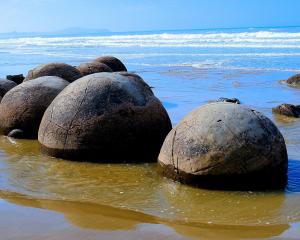A mixture of elected councillors and appointed commissioners should make up a 13-member Environment Canterbury regional council after local body elections next year, the Waitaki District Council believes.
It is suggesting there should be seven councillors elected - one each from four constituencies across Canterbury (South, Mid and North Canterbury) and four from a Christchurch constituency.
Up to six appointees would complete the council, but only for the 2016-19 term, as a transitional step to a fully elected council.
The ideas are included in a submission approved this week by the Waitaki council on the future governance of Environment Canterbury (ECan).
In 2010, after an independent report found the council dysfunctional, the Government replaced the elected councillors with appointed commissioners until at least the 2013 local body elections.
In 2013, the commissioners' terms were extended until next year's elections.
Now, the Government has called for submissions, which closed yesterday, on a representation review and how the regional council should be made up in next year's elections.
Waitaki's submission supports the proposed mixed governance structure, but believes it should be reviewed and refined over the 2016-19 term and consideration then given to another structure.
''We recognise the need to restore democratic governance and the need to ensure ECan's governing body has the right mix of skills and expertise to address the significant issues in front of it,'' the submissions said.
It emphasised the need to ensure rural communities' interests were fairly represented.
While acknowledging Local Government New Zealand and some groups would oppose a mixture of elected and appointed representatives, the Waitaki council felt it was the best way to manage the transition back to ''a full democracy'' council.
However, it also opposed a return to the way councillors were elected before being sacked in 2010.
The previous council ''proved dysfunctional'' and, from a rural point of view, returning to that was an unacceptable risk of a return to the ''bad old days'', the Waitaki council said.
At that time, ECan comprehensively failed to adequately represent and govern in a manner that reflected the needs of rural communities and failed to understand and deal with the complex water issues in rural areas.
Instead of the previous council's constituencies, Waitaki suggested one elected from each of the nine water strategy zones outside Christchurch and Christchurch electing three or four councillors.
It wanted ECan to retain its special powers for the next term under the Resource Management Act which streamline major planning decisions.












